Skip Navigation
Search
Graduate Spotlight |
|
Master’s student Cole Anderson received an award (spring 2025) and used the funding to cover preparation and exam
fees for his FAA drone license.
|
 |
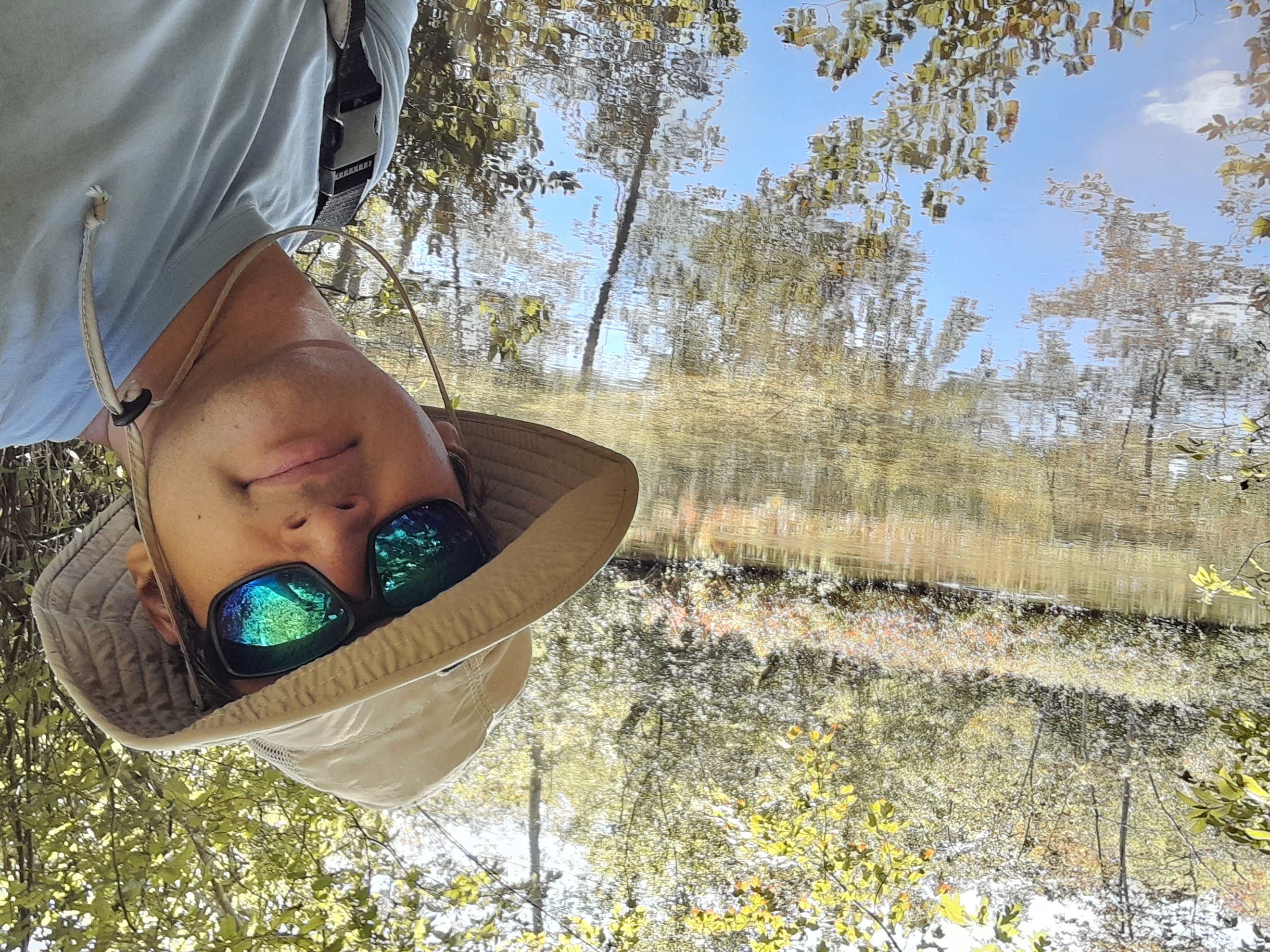 |
Carlos Morantes Ariza has been awarded the prestigious Northeast Aquatic Plant Management Society (NEAPMS)
Graduate Student Scholarship for 2025. This scholarship will support Carlos's vital research focused on enhancing the management of an invasive aquatic plant
on Long Island. NEAPMS recognized Carlos's "innovative approach and commitment to improving the management of aquatic systems,"
and expressed confidence that his work "will make a significant contribution to the
field." Congratulations, Carlos!
|
|
Julia Dovi, (2024 Slobodkin Award recipient) traveled to Charlotte, NC for the National Shellfisheries
Association meeting to broaden her perspectives on the volume and diversity of science
conducted in the field of marine invertebrates. With the help of the Department of
Ecology and Evolution and the Slobodkin Award, Dovi was able to travel around the
world to share ideas, experimental results, and learn about the life as a research
scientist and potential PhD student in the field. Also, congratulations to Julia for
being accepted in the Yale Environmental Fellows Program this summer, where Dovi will
be placed across nationally recognized nonprofits, social justice organiations, philanthropic
organizations, environmental media outlets, policy think tanks, governmental institutions
and grassroots environmental organizations.
|
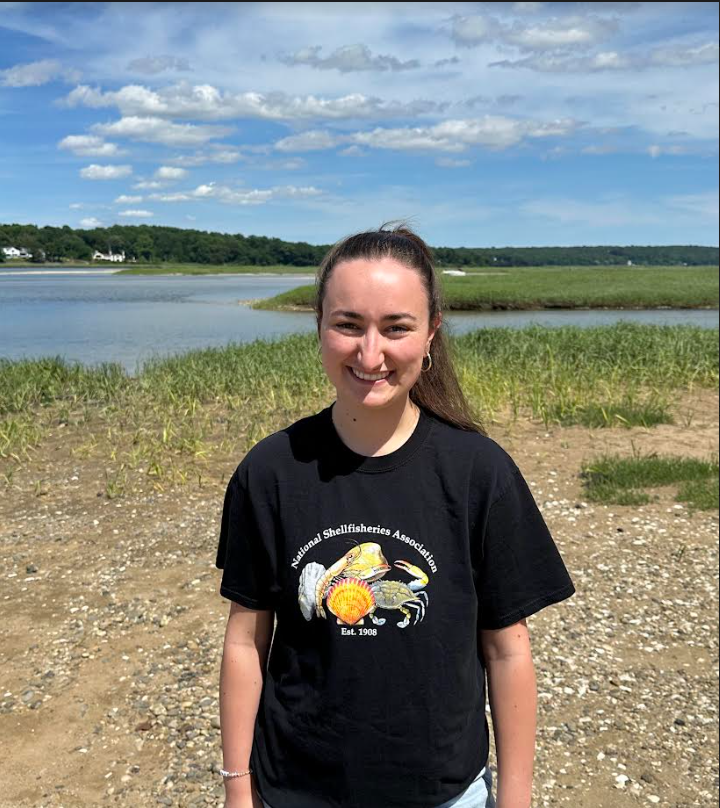 |
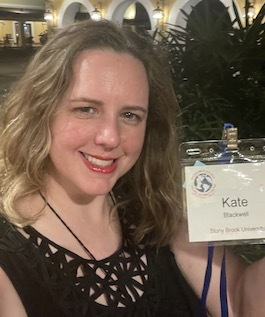 |
Caitlin Blackwell, (2024 Student Excellence Award recipient) attended the Scientific Committee on Antarctic
Research Open Science Conference in Pucón, Chile and the Waterbird Society and Pacific
Seabird Group Joint Meeting in Costa Rica. At those key international conferences,
Kate presented the first chapter of her dissertation research on remote sensing for
tracking birds.
Doctoral student Kate Blackwell received an award (spring 2025) to attend a Physalia course on Assembly and Annotation of Genomes. |
|
Nicolas Anderson (2024 Student Excellence Award recipient) presented findings on the settlement and
metamorphosis of the ribbed mussel, Geukensia demissa, in response to environmental
cues. He attended the National Shellfish Association Annual Conference in Charlotte,
North Carolina, where he gained insights into current trends and emerging technologies
for his future research and career.
|
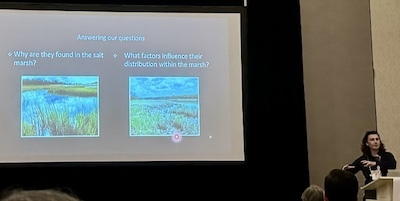 |
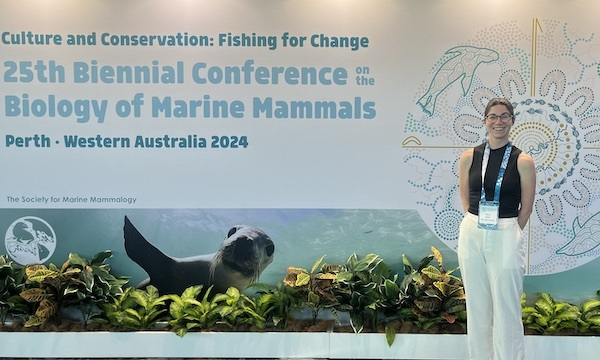 |
Chelsi Napoli (2024 Student Excellence Award recipient) went to the other side of the world, in
Perth, Australia to present her work on humpback whale vessel strikes to a packed
house at the Biennial Conference on the Biology of Marine Mammals.
|
|
Megan Wyatt (2024 Student Excellence Award recipient) visited the Natural History Museum of Los
Angeles County to research fossil rats from the late Miocene (12-7 million years ago).
Her research focuses on how landscape history promotes ecological diversity in a family
of rats native to North America. This portion of her dissertation seeks to assess
ecological disparities and turnover of Heteromyidae in connection to reported local
landscape change in the Dove Spring Formation in California's Mojave Desert.
|
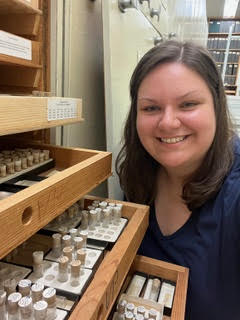 |
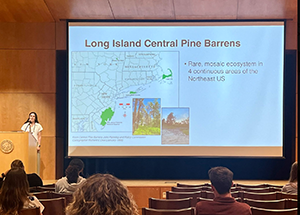 |
PhD student Imogene Welles shared her dissertation research on white-footed mouse populations and their isotopic niche dynamics in the Long Island Central Pine Barrens at the American Society of Mammalogists annual meeting in Boulder, CO. |
| Sixto Taveras Lopez presented a poster "Evaluating Ecosystem Services of Coastal Marsh Restoration in
Barnegat Bay, NJ" at the New England Estuarine Research Society (NEERS) conference
in Freeport, Maine. Sixto Taveras Lopez was selected for the Dr. W. Burghardt Turner Dissertation Fellowship. |
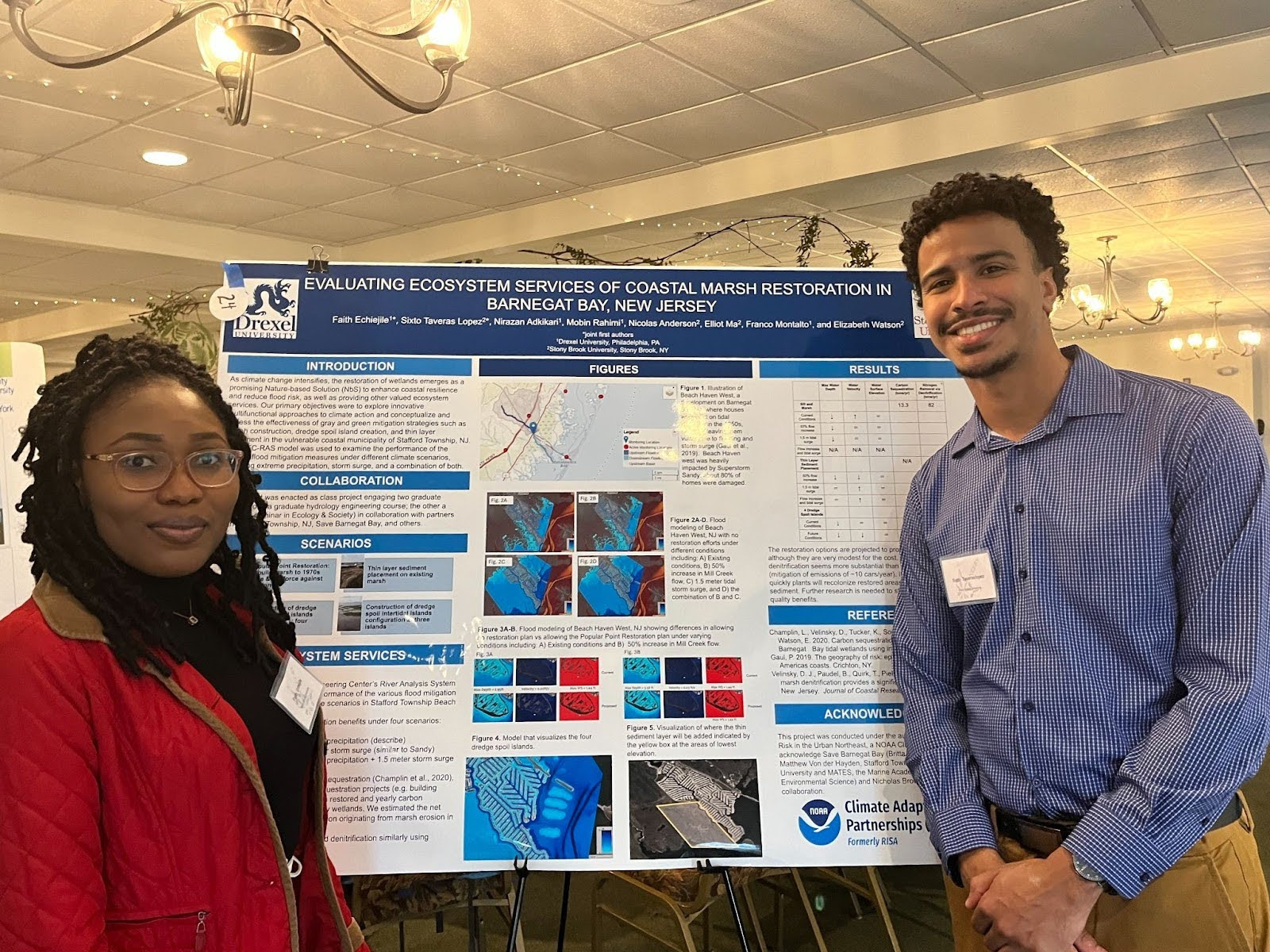 |
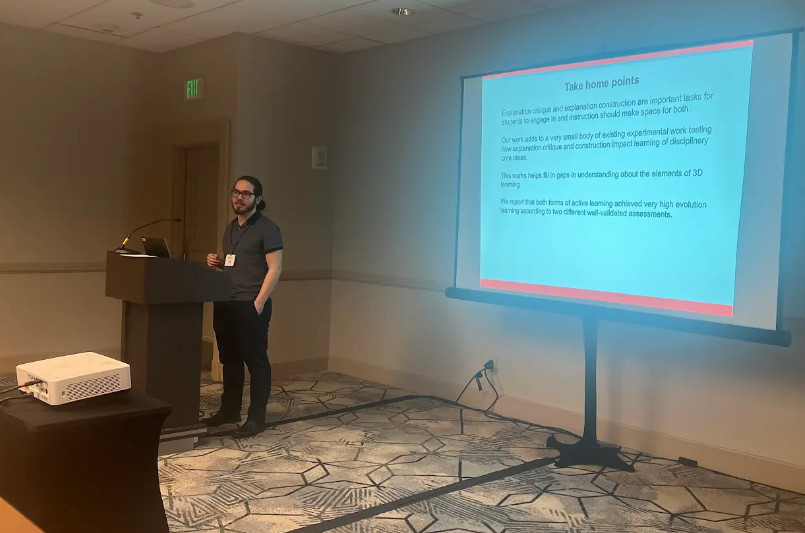 |
Evan Abreu along with alum Gena Sbeglia presented "A quasi-experimental study of the differential impacts of explanation construction vs. explanation critique on evolution learning" at the National Association for Research in Science Teaching in Denver, CO. |
| In July, Tara Smiley along with PhD student Sam Lavin and postdoc Paul Barrett joined a new team of paleontologists and geologists working with the Turkana Basin Institute. The team is studying Locherangan, a 17-million-year-old fossil site in the Turkana Basin in Kenya. The field season was remarkably productive, with the team discovering more than 300 fossils including primates, carnivores, rodents, reptiles, and more. | 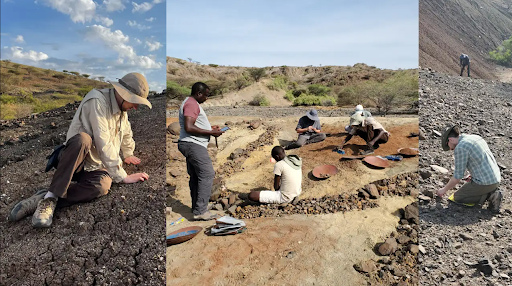 |
| Sarah Vaccaro was in the field in September collecting tissue samples from tenrecs in and around Ranomafana National Park, Madagascar. These samples will enable her to carry out genomic, epigenetic, and isotopic analyses to investigate the mechanisms used by organisms to cope with anthropogenic disturbance. | |
| Rupert Ikeh received the Dean Prize for the best graduate student poster at the New England Estuarine Research Society Meeting in Freeport, Maine. His presentation was "Spatial patterns in salt marsh plant stress derived from photosynthesis measures and satellite imagery analysis." |  |
